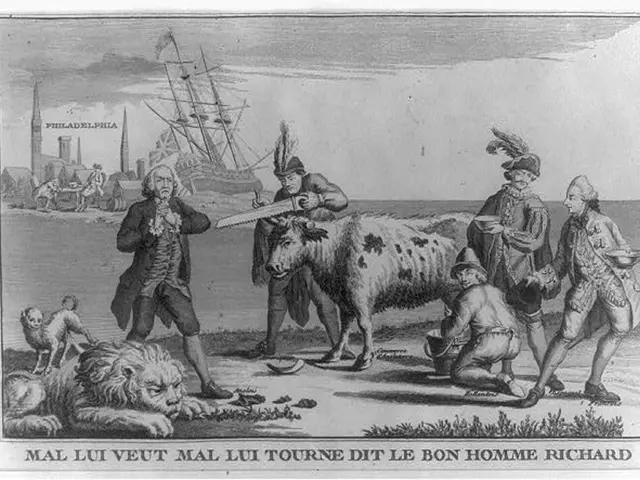Weathering the Storm: Yoko Ono's Tumultuous Life and Artistic Evolution
Yoko Ono's historic achievements amidst the hostility from The Beatles
Born on the cusp of calamity, Yoko Ono witnessed the devastation of war at an unsettlingly tender age. On February 18, 1933, in Tokyo, she emerged from the chaos of World War II, a conflict that would inextricably intertwine with her life and inform her aspirations as an artist. A scion of one of Japan's wealthiest and most powerful families, her formative years were a turbulent blend of affluence and hardship reflective of a nation wrestling with its wartime destiny.
Raised amid the opulence that defined her family's aristocratic pedigree, Yoko felt a profound disconnect, describing her parents as emotionally distant and her childhood as one shrouded in isolation. Her maternal grandfather, a pillar of the Yasuda Zaibatsu—one of Japan's biggest conglomerates—and her paternal grandfather, a former bank governor, presided over a household that felt alien to her. Her father, a career banker who spent much of his time away on international assignments, communicated with Yoko in English and Japanese, adding another layer of disconnect to her upbringing.
The tumultuous times of post-war Japan left an indelible mark on Yoko's young mind. Economic hardships forced her mother to barter family heirlooms for desperately needed essentials like rice, introducing her to the harsh realities that accompanied war. The image of scarcity stayed with her, igniting an enduring fascination with food and the power it held over human imagination. "I realized that even just imagining food, we could be happy," she once mused, encapsulating the essence of her first conceptual piece of art.
The early years of Yoko's life were not the only period of upheaval she experienced. The war-torn landscape she knew shifted dramatically from the sheltered world she'd known, when her mother opted to flee the city with her children to a rural village. The locals met the refugee family with animosity, and the children exchanged their possessions for food, struggling to satiate their constant hunger. In the midst of such uncertainty, Yoko discovered a unique form of solace—turning her thoughts to the specifics of food and the act of eating, cultivating an imaginative meal through the power of her mind.
Yoko Ono's journey into her artistic career was neither straightforward nor unchallenged. Her early foray into music and poetry at Sarah Lawrence College in New York State followed a brief stint at the philosophy department of Gakushuin University, a prestigious institution usually attended by Japan's elite. Labeled a rebel, she found higher education confining and ultimately dropped out.
Yoko's distinctive style and experimental vision crystalized in the early 1960s when she embraced conceptual art, becoming a pioneer in the movement. With works infused with themes of peace, love, and social commentary, she left an indelible mark on the global art scene. Her experiences during war and her family's complicated heritage provided the foundation for her provocative and innovative artistic oeuvre that continues to inspire contemporary artists.
Throughout her career, Ono has wrestled with her identity, mirrored in her choice of art forms and collaborators. Japanese, American, Christian, and Buddhist—her multifaceted heritage blurred the lines of self-definition and contributed to her ethereal and philosophical approach to art-making. Today, Yoko Ono remains a vital force in the world of art, her unwavering commitment to transforming the world and championing freedom etched in everything she creates.
In the face of her multifaceted heritage, Yoko Ono's unique artistic voice emerged, infusing pop-culture with her pioneering conceptual art, characterized by themes of peace, love, and social commentary (pop-culture, art). Navigating through the tumultuous landscapes of music and celebrity, her distinct style echoed her complex background as a Japanese and American artist, continuing to inspire new waves of entertainment today (entertainment, celebrities, music).








